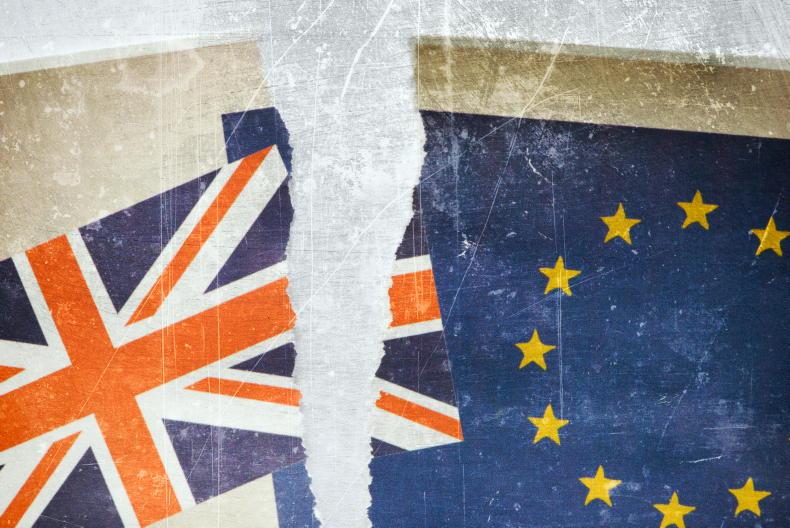There were contradictory signs in the past week about the possibility of resolving the impasse over the Northern Ireland Protocol.
The prospect of a visit to Britain next spring by US President Joe Biden creates a time line towards which EU and UK negotiators could work, if they can agree to start talking to one another and a minimum level of mutual trust is achieved.
After all, the US is closely allied with both the EU and the UK in its effort to sustain the territorial integrity of Ukraine in the face of Russian invasion.
The US needs the EU and the UK to be seen to be working together and pooling their resources, rather than imposing sanctions on one another because of their disagreements over the Protocol.
Truss announcement
Another positive sign was the almost casual announcement, to journalists while on a plane on the way to the US, by the new UK prime minister Liz Truss that a post-Brexit trade deal by the UK with the US was no longer a realistic prospect.
Former President Barack Obama had told the British public this during the 2016 referendum campaign but Liz Truss is the first UK prime minister to accept it.
Apart from longstanding Irish-American concerns about British policy in regard to Northern Ireland, there is a general reluctance in US public opinion and in Congress to reduce barriers to foreign imports.
During its period of rapid growth from the mid-19th to the mid-20th century, the US remained a highly protectionist country, with high tariffs and regulatory barriers to foreign imports. The UK, on the other hand, was a champion of free trade.
The fact that the UK is now no longer pitching for a trade deal with the US means that it is no longer under pressure from the US to scrap its still in force and EU originating bans on chlorine-washed chicken and hormone treated beef.
Plant and veterinary issues
If, in order to keep open the possibility of a trade deal with the US, the UK was to insist on getting rid of these bans on chlorine-washed chicken and hormone-treated beef, it would have been impossible for it to negotiate a plant and veterinary (SPS) agreement with the EU.
A deal on those lines would not pass in the European Parliament.
Plant and veterinary issues are at the heart of the disagreement over the Protocol.
Denial of access to British sausages and to English garden centres are among the most prominent practical problems cited by Northern Irish objectors to the Protocol.
These difficulties would disappear if there was a comprehensive SPS agreement between the UK and the EU.
But what form might such an agreement take?
The EU has a land boundary with the UK, so plant and animal diseases can pass easily from one jurisdiction to the other. There is a single food chain encompassing both the EU and the UK.
Close connections
The connections are so close that the EU will insist an agreement under which the EU and the UK would have the same rules governing plant and veterinary health.
The UK, on the other hand, wants an agreement whereby the UK would make its own separate and different rules, but that these British rules would be accepted by the EU as “equivalent” to the EU rules.
In other words, the UK rules could be accepted by the EU as “different but just as good”.
In order to justify Brexit, the present UK government is planning to scrap all EU-originating laws and replace them with British-originating laws by the end of next year. Any EU rule still in place by the end of 2023 will simply lapse.
Huge burden
This process of removing and replacing EU rules will be a hugely burdensome bureaucratic exercise.
It will be hard to justify all the effort, if all that emerges, at the end of 2023, are new British laws that are so similar to the EU laws they replace, that they qualify as being “equivalent” to them.
If that happens, people will ask what was the point of Brexit?
So there is a clash between the rhetoric of Brexit and reality of trade. Having a single set of rules for standards of goods across the continent of Europe eases the path for exporters from Britain – but adopting EU rules to achieve this removes the central justification of Brexit.
This is a choice Liz Truss will have to make in coming months.









SHARING OPTIONS